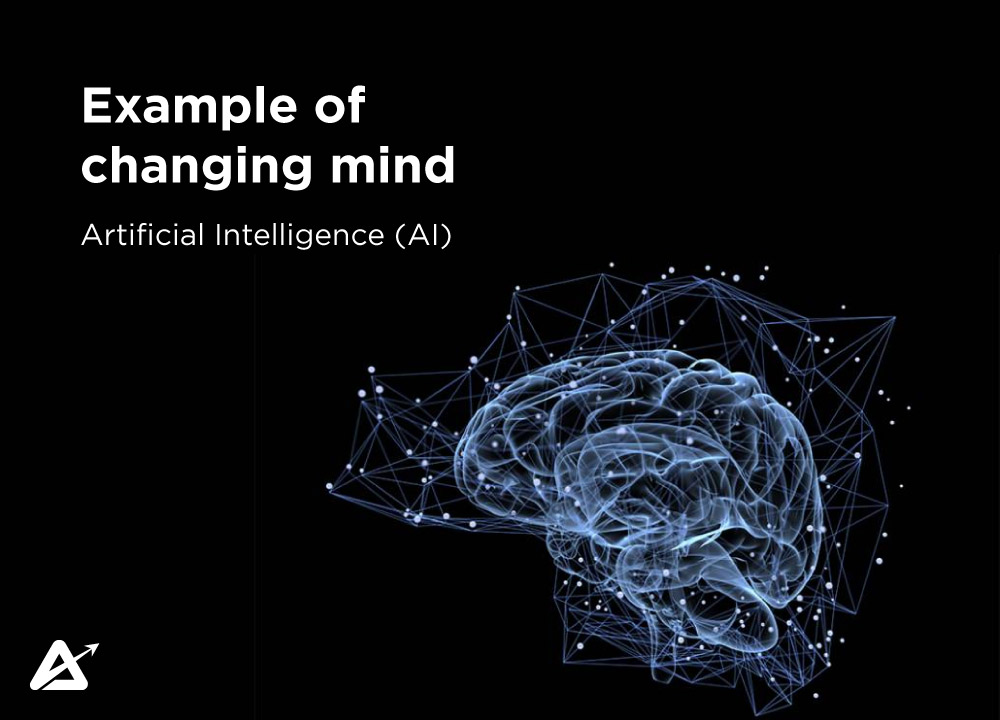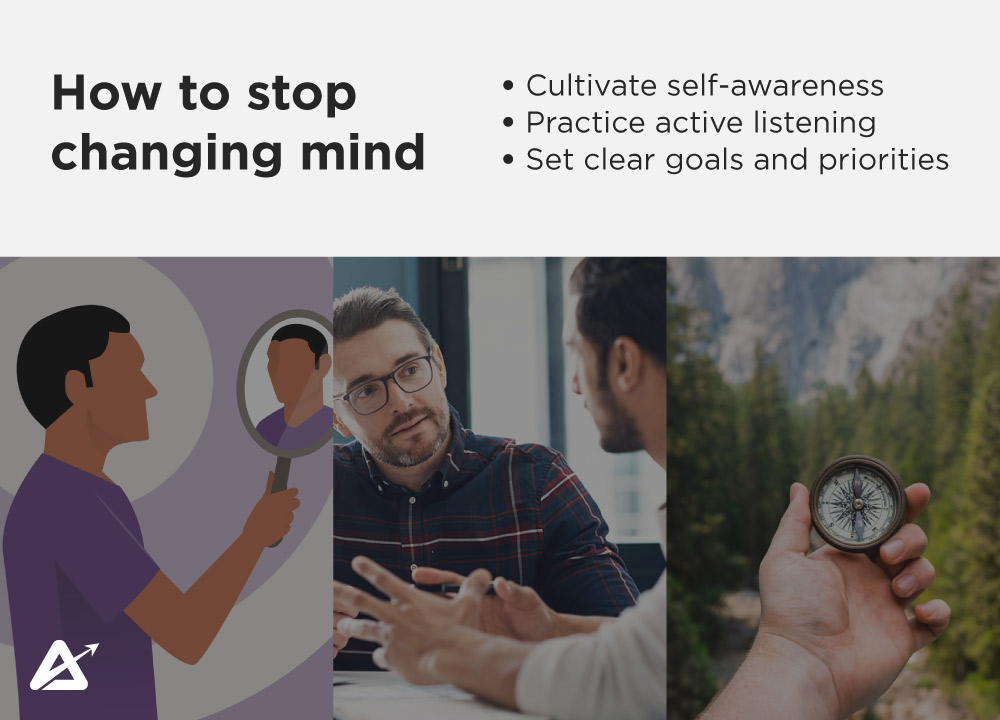Change is integral to the human experience, shaping our thoughts, beliefs, and decisions. However, for some individuals, the frequency of changing their minds can be perplexing and even frustrating. If you find yourself constantly flip-flopping on decisions, don’t despair.
We are anam cara.In this blog post, we will explore why you might change your mind so much and how this tendency can be a powerful tool for personal growth and development.
Why do I keep on changing my mind?
The human mind is a complex web of thoughts, emotions, and experiences, constantly evolving and adapting. Change is an inherent part of our nature, and it manifests itself in our decision-making process.
As we encounter new information, perspectives, and circumstances, our understanding and preferences undergo constant revision. Our changing minds reflect growth and a willingness to explore different possibilities.
Embracing this fluidity allows us to refine our thoughts, learn from mistakes, and make informed choices. It is through the dynamic nature of our minds that we navigate the intricacies of life, continually shaping our beliefs and aspirations on the journey of self-discovery.
What is it called when you change your mind a lot?
When someone frequently changes their mind, it is often referred to as being indecisive or having a fickle nature. Indecisiveness is a consistent lack of commitment to a particular choice or opinion.
Individuals who exhibit this trait may find it challenging to make firm decisions, often wavering between different options or constantly second-guessing their choices.
This behavior can stem from various factors, including a fear of making the wrong decision, a desire to please others or a lack of confidence in one’s own judgment.
While occasional changes of mind can be regular and reflective of an open-minded approach, excessive indecisiveness can lead to frustration for both the individual and those around them.
To overcome this tendency, individuals can work on developing their decision-making skills, enhancing self-confidence, and seeking clarity by analyzing the available information and considering the potential consequences of their choices.
What is an example of changing your mind?

One example of changing my mind is my perception of artificial intelligence (AI). Initially, I held reservations and fears about AI replacing human jobs and control. However, through exposure to real-world applications and understanding its potential, I realized the positive impact it could have.
Witnessing AI’s ability to enhance productivity, improve healthcare, and advance scientific research, my viewpoint shifted. I recognized the importance of AI as a tool for augmenting human capabilities rather than replacing them. This change of heart highlighted the significance of being open-minded, embracing emerging technologies, and staying informed.
Adapting my perspective on AI allowed me to appreciate its transformative possibilities, promoting collaboration between humans and machines for a brighter future.
Is it bad that I change my mind a lot?
Changing your mind frequently can be both a positive and negative trait. On the one hand, it shows flexibility, open-mindedness, and a willingness to consider new perspectives. It can lead to growth, adaptation, and better decision-making.
However, excessive changes can also indicate indecisiveness or a lack of commitment. Strive for a balance between being adaptable and making thoughtful choices.
Embrace change when it adds value, but also learn to trust your instincts and stay committed when necessary. Remember, it’s okay to evolve as long as it aligns with your values and goals.
Why do I change my mind so much about liking someone?
Changing one’s mind about liking someone can stem from various factors.
- Firstly, it could be a reflection of our evolving perceptions and experiences. We gather new information that may influence our feelings as we interact with someone. Additionally, emotional fluctuations, influenced by external circumstances or personal moods, can impact our attraction toward others.
- Inconsistencies in the behavior or character of the person we’re interested in might also trigger changes in our feelings. Furthermore, internal conflicts and insecurities can manifest as uncertainty or wavering emotions.
- Past experiences and relational patterns may also contribute to our shifting preferences. Ultimately, the complexity of human emotions and the intricate interplay of personal, social, and psychological elements can lead to the fluctuation of one’s affections and opinions about someone.
When do you change your mind all the time?
One characteristic of human decision-making is the potential for changing one’s mind frequently. This tendency can arise from various factors, such as new information, evolving perspectives, or external influences.
When confronted with fresh evidence or alternative viewpoints, individuals may reassess their initial stance and adjust their opinions accordingly.
Additionally, the process of learning and acquiring knowledge can lead to shifts in beliefs as one gains a deeper understanding of a subject. Emotional factors, societal pressures, and personal growth also contribute to this fluctuation.
The ability to change one’s mind demonstrates adaptability and openness to new ideas, allowing for personal development and a more nuanced understanding of the world.
How do I stop changing my mind?

If you find yourself constantly changing your mind and desire to develop a more decisive approach, here are a few suggestions.
- First, cultivate self-awareness by examining the underlying reasons for your indecisiveness. Are you seeking perfection, fearing failure, or lacking confidence? Identifying these patterns can help you address them directly.
- Second, practice active listening to your intuition and values. Trusting your instincts can lead to more consistent decision-making.
- Third, set clear goals and priorities. Knowing what you truly want will provide a solid foundation for making choices.
- Fourth, consider the potential outcomes and consequences of your decisions, weighing the pros and cons. However, avoid excessive overthinking, as it can lead to analysis paralysis.
- Lastly, embrace a growth mindset and view decision-making as a learning opportunity. Remember that decision-making is a skill that can be honed over time with practice and reflection.
Why is someone always in my mind?
Having someone constantly occupying your thoughts can stem from various reasons. It could be due to a deep emotional connection or attachment to that person, whether it’s a close friend, romantic partner, or family member.
It could also be a result of unresolved issues or unfinished conversations with them. Additionally, their presence in your mind might indicate an unrequited love or a desire for their attention.
Psychological factors such as obsession, infatuation, or trauma can also play a role. Understanding the underlying reasons can help address and navigate these persistent thoughts.
Conclusions:
Change is an inherent part of the human experience, and our ever-changing minds are a testament to our growth, adaptability, and willingness to learn. Embracing the fluidity of our thoughts allows us to navigate the complexities of life with an open mind, fostering personal growth and deeper connections with others. By acknowledging the reasons behind our changing minds, we can approach life’s challenges with curiosity, humility, and a greater appreciation for the transformative power of change.







Your writing style is captivating! I was hooked from the first paragraph. The way you weave facts with narrative is truly skillful. This post not only informed me but also entertained. Can’t wait to see what you write next!